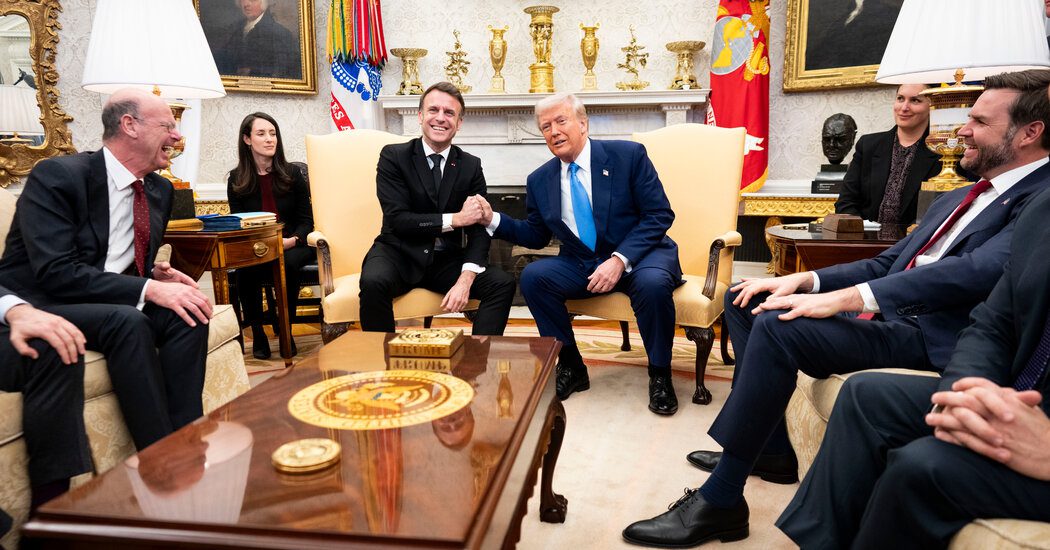
On Monday, President Trump and French President Emmanuel Macron showcased their camaraderie during their initial meeting following last month’s inauguration. However, their warm gestures and friendly exchanges could not fully mask the escalating tensions between the United States and Europe regarding the ongoing conflict in Ukraine.
Scheduled to coincide with the third anniversary of Russia’s full-scale invasion of Ukraine, both leaders aimed to prevent an outright fallout while exchanging pleasantries at a warm White House gathering. Nonetheless, they fundamentally disagreed on the origins of the conflict, each nation’s involvement, and potential pathways to peace.
The meeting occurred amid sharp disagreements at the United Nations, where the U.S. and France took opposing stances on a resolution condemning Russia’s actions. While the broader international community, including most European nations, rallied behind Ukraine, the Trump administration aligned with Russia, North Korea, and Belarus, positioning the U.S. in an unprecedented alliance at the U.N.
This growing chasm was evident across major cities on both sides of the Atlantic. Iconic landmarks such as the Eiffel Tower in Paris, the Brandenburg Gate in Berlin, and EU institutions in Brussels were lit up in blue and yellow to express solidarity with Ukraine, while the White House refrained from making a similar gesture. During a period when numerous global leaders traveled to Kyiv to support Ukrainian officials, Trump focused instead on negotiating access to the nation’s natural resources as compensation for military aid.
“I believe we’ve achieved considerable progress,” Trump remarked about his dialogue with Russian President Vladimir Putin regarding peace efforts. “We’ve had some productive discussions with Russia and other stakeholders, and we are working to bring an end to the conflict between Russia and Ukraine.”
He also mentioned the possibility of traveling to Moscow if a peace agreement were finalized, predicting that such an agreement may materialize in the coming weeks. This visit would mark the first time an American president has set foot in Russia in over a decade, potentially benefiting Putin, who is currently facing an international arrest warrant for alleged war crimes.









